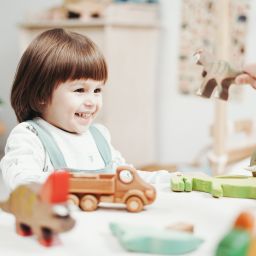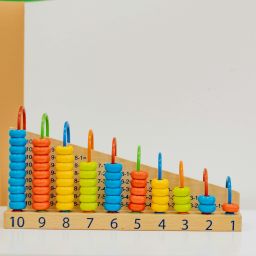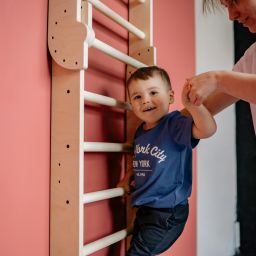
FH Summary: A growth mindset is a powerful tool for helping children develop positive habits that lead to lifelong success. By focusing on effort, resilience, and learning from mistakes, parents can create an upward spiral of growth, fostering confidence and adaptability in their children. First Habits supports families in implementing these strategies to build strong foundations for elevated child development and personal achievement.
As parents, one of the most impactful gifts we can give our children is the ability to see challenges not as roadblocks but as opportunities for growth. This mindset, often referred to as the “growth mindset,” is a cornerstone in developing first habits that shape a child’s success throughout life. By focusing on this essential concept, we can nurture an upward spiral of positive behaviors and habits, laying the foundation for a bright childhood.
The Power of Growth Mindset in Creating Optimal Habits for Children
At its core, a growth mindset is the belief that abilities and intelligence can be developed through effort, perseverance, and learning. When children embrace this mindset, they begin to see failures not as defeats but as stepping stones to improvement. As Carol Dweck, the pioneering psychologist behind the concept, explains, “Becoming is better than being.” This belief is central to helping children develop habits that foster resilience and curiosity.
A child with a growth mindset doesn’t shy away from challenges or fear mistakes; instead, they see opportunities to grow. For example, imagine an eight year-old learning to play the piano. A fixed mindset might lead them to quit after a few mistakes, thinking, “I’m just not good at this.” However, with a growth mindset, they might instead say, “I can get better at this if I keep practicing.” This shift in thinking sets the stage for the development of lifelong habits such as perseverance, adaptability, and confidence.
Developing an Upward Spiral of Positive Habits
Habits – whether positive or negative – rarely exist in isolation. A single good habit, like completing homework on time, can set off a chain reaction that influences other areas of life. This phenomenon is known as an upward spiral. For example, a child who learns to organize their schoolwork may also improve their time management, leading to better grades and more confidence in their abilities.
Conversely, the absence of intentional habit-building can lead to a negative spiral. A child who procrastinates on homework might struggle with deadlines, leading to lower grades and reduced self-esteem. The growth mindset acts as a catalyst for creating that upward spiral by encouraging children to view their efforts as meaningful and their failures as opportunities for growth.
Practical Strategies to Foster a Growth Mindset at Home
Implementing a growth mindset doesn’t happen overnight, but small, consistent actions can make a lasting impact. Here are some practical strategies for parents:
§ Praise Effort, Not Talent: Instead of saying, “You’re so smart,” try saying, “I’m proud of how hard you worked on this.” This reinforces the idea that effort leads to improvement.
§ Model Growth Mindset Language: Children learn by observing their parents. Use phrases like, “I haven’t mastered this yet,” or “Mistakes help me grow,” to normalize the process of learning and failing.
§ Encourage Problem-Solving: When your child faces a challenge, ask open-ended questions like, “What could you try differently next time?” This shifts the focus from the problem to potential solutions.
§ Celebrate Progress: Recognize and celebrate small milestones to build confidence and motivation.
§ Create a Learning-Friendly Environment: Surround your child with opportunities to explore and experiment, whether through books, games, or creative projects.
The Role of First Habits in Elevated Foundations of Child Development
At First Habits, we believe that instilling good habits early in life provides the foundation for elevated child development. By helping children adopt a growth mindset, parents can create a ripple effect that positively impacts their social skills, academic performance, and emotional well-being.
Consider the story of Liam, a shy nine-year-old who struggled with public speaking. After his parents encouraged him to see each presentation as a chance to grow, he began to focus on preparation and practice rather than fear of failure. Over time, Liam not only became more confident but also developed better communication skills and a love for learning. His journey exemplifies how a growth mindset can transform initial challenges into opportunities for growth.
Conclusion: Building a Brighter Future Through First Habits
By fostering a growth mindset in young children, parents can create a nurturing environment where curiosity and resilience thrive. This foundational mindset serves as the catalyst for developing optimal habits, leading to an upward spiral of personal growth and achievement.
At First Habits, we’re here to support parents every step of the way. Check out other blogs on our website to explore resources, tips, and tools to help your child build positive habits and embrace the power of growth. Together, let’s unlock the incredible potential within every child.
















